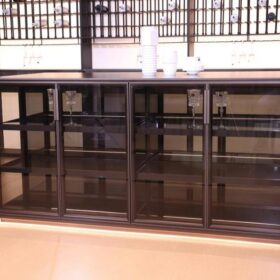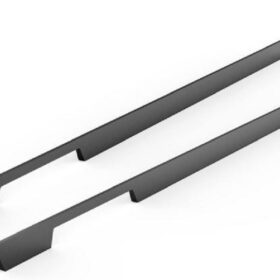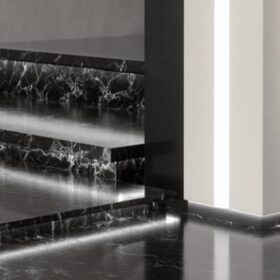Choosing the Right Aluminium Alloy Handle for Your Application
Aluminium alloys are widely used in the manufacturing of handles due to their lightweight, high strength, and corrosion resistance. However, selecting the right aluminium alloy for a specific application is crucial to ensure optimal performance and durability. Here’s a comprehensive guide to choosing the right aluminium alloy handle for your application:
Mechanical Properties
Tensile Strength: Determines the handle’s ability to withstand pulling forces without breaking. Higher tensile strength is generally desired for applications involving heavy loads or repetitive use.
Yield Strength: Measures the handle’s resistance to permanent deformation under stress. A higher yield strength indicates better resistance to bending or bowing.
Elongation: Indicates the handle’s ability to stretch before breaking. Higher elongation allows for some flexibility, while lower elongation provides greater rigidity.
Corrosion Resistance
Aluminium 6000 Series Alloys: Known for excellent corrosion resistance in marine environments and industrial applications.
Aluminium 7000 Series Alloys: Highly resistant to corrosion in harsh conditions, including saltwater and chemicals.
Heat Resistance
Aluminium 5000 Series Alloys: Good heat resistance and suitable for applications exposed to moderate temperatures.
Aluminium 6000 Series Alloys: Excellent heat resistance and can withstand high operating temperatures without losing strength or durability.
Machinability
Aluminium 1000 Series Alloys: Easily machinable, allowing for complex shapes and precise tolerances.
Aluminium 2000 and 7000 Series Alloys: Harder and more difficult to machine, but offer higher strength and hardness.
Surface Finish
Anodizing: Creates a hard, protective oxide layer that improves corrosion resistance and wear resistance.
Powder Coating: Provides a durable and decorative finish with a wide range of color options.
Mechanical Polishing: Gives the handle a smooth and shiny surface finish.
Application-Specific Considerations
Industrial Handles: High strength, corrosion resistance, and durability are essential for handles used in industrial settings.
Medical Handles: Sterilizability, non-toxicity, and biocompatibility are crucial for handles intended for medical applications.
Food Service Handles: Resistance to corrosion, food acids, and cleaning agents is paramount for handles in food preparation and handling.
Conclusion
Choosing the right aluminium alloy handle for your application requires careful consideration of various factors, including mechanical properties, corrosion resistance, heat resistance, machinability, surface finish, and application-specific requirements. By aligning the alloy properties with the demands of the application, you can optimize handle performance, durability, and overall value.
-
2024-11-29Top Trends in Modern Kitchen Cabinet Pulls for 2024
-
2024-11-28The Ultimate Guide to Modern Kitchen Cabinet Pulls- Materials, Styles, and Tips
-
2024-11-27Elevate Your Kitchen Design with These Must-Have Modern Cabinet Pulls
-
2024-11-26Sleek and Stylish- The Best Modern Kitchen Cabinet Pulls for a Contemporary Look










